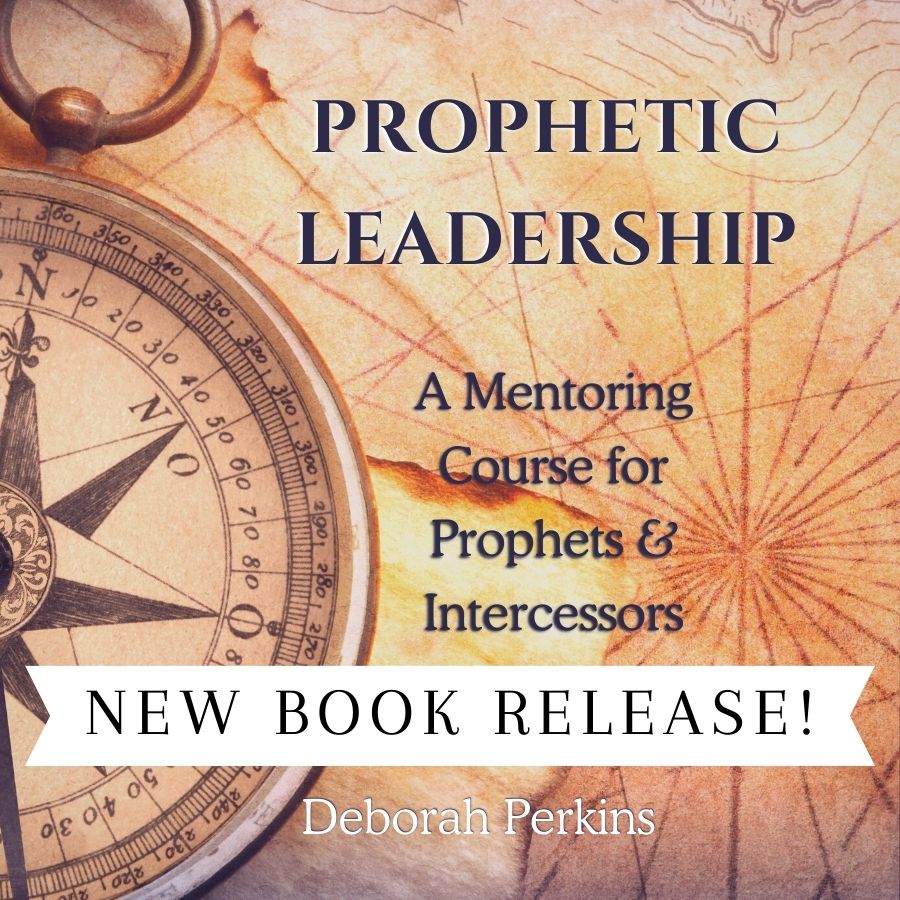 I've been reading 1 Samuel again, this time studying David's nemesis, Saul. One of the frustrating things for a "type A" person like me is the tendency to run ahead of God and try to do things in my own strength. This week, the Lord gently revealed to me that I had done something very "Saul-ish," and hadn't waited for His leading. (ouch!) I appreciated the correction (only God can tell you that you've completely missed it and still have you love Him in the end!) The Scripture He gave me actually opened up the idea for today's post. So here it is, in raw form, for you. The context is 1 Samuel 13 where Saul, who had been anointed King of Israel only one year before, faced the threat of battle against a massive Philistine army at Michmash, near Gilgal. Israel was for the most part defenseless - partly because they had neither sword not spear (verse 22), and partly because many of Saul's men had fled in fear to hide themselves in caves, thickets, cellars, and cliffs (v. 6). Saul had been instructed by Samuel earlier (1 Samuel 10:8) to wait seven days for him at Gilgal, and Saul himself was growing fearful and impatient. Samuel (God's prophetic representative) was nowhere to be seen, even as the seventh day arrived. We can be fairly sure this was a test for Saul which he failed (and would fail again in chapter 15). Saul knew his people were fleeing; he feared the thousands of Philistines assembled against him, and he didn't see any help from God showing up. So he took matters into his own hands, commanding the priests to bring him burnt offerings and sacrifice peace offerings: things that Samuel had said he would show Saul how to do when he came. (1 Samuel 10:8). On the outside, this looked like the right thing to do. After all, Saul was offering sacrifices and seeking God in the hope of currying His divine favor and help in battle. In Saul's own words, "The Philistines will now come down on me at Gilgal, and I have not made supplication to the Lord. Therefore I felt compelled, and offered a burnt offering." (1 Samuel 13:12). But Samuel was not impressed. Although Saul had kept the outward ceremonies, he had not honored God in his heart, and had acted foolishly. His sin was a childish one, not the action of a man who intimately knew and trusted God, but the work of one who doubted whether God would show up. We know from Romans 14:23 that what does not proceed from faith is sin. Saul's excuse to Samuel in verse 11 reveals three things that hindered him from waiting on God: 1. "I saw that the people were scattered from me" (fear of rejection and a need for approval) 2. "You did not come within the days appointed" (fear of not hearing from God) 3. "The Philistines gathered together at Michmash" (anxiety and fear of his circumstances). The result was that because Saul rejected God's commandments, God ultimately rejected him from being king, and established David as a more godly ruler instead. Here's the clincher. Saul didn't know it, but his situation was exactly the kind of setup he could have used to tap into the greatest power known to man. Defenseless, he could have made God His defense. Had he been willing to wait for God, he could have seen an explosive victory, overcome his own fears, and deepened his spiritual life by working in partnership with God. Instead, someone else became instrumental in winning the battle. Our fears do little to further the Kingdom of God. Today, the Holy Spirit actually dwells within us in order to convey God's specific instructions and timing. The test, however, is the same for us as it was for Saul: Saul had to wait for Samuel; we must wait for God. I believe that in our busy world, this is an even bigger challenge. We often fail. And the enemy loves to "compel" us to move out ahead of God's timing. Unfortunately, this causes us to miss out on the power of the gospel, as we end up reducing it to mere words or ceremonies. Thankfully, when we fail to wait for the Spirit's leading, God provides an advocate for us through His Son: My dear children, I write this to you so that you will not sin. But if anybody does sin, we have an advocate with the Father--Jesus Christ, the Righteous One. ~1 John 2:1, NASB. When we bring our failures to the cross of Christ, we do not have to fear condemnation. We can become more like David instead of Saul, keeping our hearts tender towards God and making sure our consciences stay clean. Through prayer, we can ask God to help us resist the urgency of the enemy and learn to trust Him. He will show us if one of Saul's three fears might be hindering us from waiting for Him. And by His grace, our failures will become the grounds for our training, not our disqualification. When this happens, the Philistines of the world had better look out, because we will be coming forth with God's anointing and power, and in Him, we will be unstoppable. Deborah Perkins Wait and hope for and expect the Lord; be brave and of good courage and let your heart be stout and enduring. Yes, wait for and hope for and expect the Lord ~ Psalm 27:14, AMP.  Today's blog is a little different from the usual! The topic is "Ancient Letter-Writing Practices," and it is an interview with Professor AnneMarie Luijendijte of Princeton University by Harvard Divinity School Professor Laura Nasrallah. It includes an intriguing peek at some ancient papyri from Princeton University's collection. For anyone interested in understanding more about first-century Christianity and how letters - including Paul's biblical texts - were circulated, this is a must-see! When reading the Bible from an inspirational point of view, most of us don't put a lot of thought into how the Scriptures came into being. We know that there was a process of canonization by the church, of course, but what we often don't consider is that the Bible as we know it is really a collection of ancient letters gathered from many varied authors and sources. Knowing this does not change our faith in any way; in fact, the longer I have studied the various texts and manuscripts, the more appreciative I have become of the hand of God in preserving detailed accounts, or "inscriptions," of our faith. The location, preservation, and compilation of so many scrolls and manuscripts into one cohesive, inspired whole is miraculous in itself. As you listen to this YouTube video, think about the letters of Paul and the context in which he and others were communicating. It is fascinating! Grab a cup of coffee - the video runs about 25 minutes - and I hope you enjoy it as much as I did! :-)
If you’re like most Christians, one of your biggest questions is probably, “How do I know the will of God?” It can feel pretty frustrating, at times, to try to communicate with a God who is largely unseen and (most of the time) not speaking audibly! Why doesn’t God just give us a sign when we need it, or be a little more obvious about His intentions? After all, we are trying to obey Him! And life is complicated enough without attempting to figure out how to follow an invisible God into His will.
Believe it or not, there is a way to know the will of God. And – big surprise – He has outlined how to do it in the Bible. In order to follow Him successfully, we need one thing: wisdom. The Hebrew word for wisdom (Strong’s #8454: “tuwshiyah”) is defined as “sound and efficient wisdom, or abiding success.” I like that. Abiding success sounds good to me, when most of the time life seems very unstable! Another definition of wisdom (this one by Merriam-Webster online) is “good sense or judgment,” or the “knowledge gained by having many experiences in life.” The good news is that you don’t need to be old to get wisdom. There is Someone who has already experienced everything you and I will ever experience in this life, and His name is wisdom! Counsel is mine, and sound wisdom; I am understanding, I have strength. ~Proverbs 8:14 With Him are wisdom and strength, He has counsel and understanding. ~Job 12:13 The Spirit of the Lord shall rest upon Him (Jesus), the Spirit of wisdom and understanding, the Spirit of counsel and might, the Spirit of knowledge and of the fear of the Lord. ~Isaiah 11:2 Jesus is the beginning and end of all wisdom. He created us, He knows how we’re wired, He knows where we’re going, and He can tell us how to get there. A related verse is Proverbs 9:10: “The fear of the Lord is the beginning of wisdom.”
The first step to knowing God’s will is to begin a relationship with Him. Relationship is necessary to hear and understand His voice. We cannot truly hear or follow someone whose voice we do not know.
For example, at Passover the disciples had just been told that Jesus would be betrayed and would leave them. The plan of resurrection was not yet clear to them, and they were asking questions of Jesus during the meal. Thomas asked the question that many of us still ask today: “Lord, we do not know where you are going, and how can we know the way?” Jesus’ reply was this: “I AM the way, the truth, and the life. No one comes to the Father except through Me.” (John 14:5) So He tells us that knowing Him is the first key to finding the path we should walk on. (He also hints, in case you missed it, that our ultimate goal is to come into relationship with the Father!) The disciples who were with Jesus had the benefit of speaking directly with Him, but how do we know God will speak to us, now that Jesus no longer walks the earth? We have promises from His Word. John 10:4 says that Jesus’ sheep (that’s us!) follow Him because they hear His voice. And Psalm 32:8 says: “I will instruct you and teach you in the way you should go; I will guide you (counsel you) with My eye upon you.” In other words, all of us have the spiritual ability to hear God. Later in the New Testament, however, Paul and Timothy were praying, asking that the believers at Colosse “be filled with the knowledge of His will in all wisdom and understanding…” (Colossians 1:9). Why would they pray for wisdom if believers already had it? I believe this is the million-dollar question for believers, one that will lead us into the deepest, most powerful life we can live. They prayed because they knew that there is a supernatural understanding that must be activated in order for believers to fulfill their ultimate callings in the Kingdom of God: the second step to knowing His will. Look at the disciples again, post-resurrection. In Luke 24, Cleopas and another disciple were walking along the road from Jerusalem to Emmaus, “conversing” and “reasoning.” They were discussing between themselves all the things that had recently happened. Their eyes were said to be “restrained,” so that even when Jesus drew near to walk with them, “they did not know Him.” (Luke 24:16, NKJV). Remember these are people who did know Jesus, and had traveled with Him and heard His voice for years! Their reasoning was leading them nowhere, though, until Christ “expounded to them in all the Scriptures the things concerning Himself.” When God’s thoughts became their thoughts, suddenly everything made sense again. Notice the similarity between the three things that happened in this last chapter of Luke to show us how God guides us: 1. Jesus “opened the Scriptures” to them. Cleopas and the other disciple immediately recognized truth when Jesus explained Scripture and their hearts began to burn within them. (Luke 24:32). 2. Jesus broke bread with them, and “then their eyes were opened and they knew Him.” (Luke 24:31). 3. Jesus later returned to the full gathering of disciples in Jerusalem, talked and ate with them, and “He opened their understanding, that they might comprehend the Scriptures.” (Luke 24:45). The common denominator in each of these encounters is that Jesus was supernaturally opening the understanding (or the minds) of His disciples, so that they could truly perceive what God’s plan was all about. It was a deeper level of hearing: not just a hearing of the ears but a hearing and understanding by the mind and spirit as well. This kind of hearing is activated by the Holy Spirit alone.
It was not until after the Holy Spirit was released upon all the believers in Acts that the disciples began teaching and explaining the Scriptures to others as Jesus had to them.
Peter’s first recorded teaching in Acts 2 is lengthy enough to show us that He now had a full grasp of the meaning of the life of Jesus and the message of the Kingdom of God, as well as his own place in it. When the Spirit of God came upon Peter, he immediately knew what to preach! And his anointed words now contained the same power that Christ’s words had carried earlier with the two disciples on the road. Peter’s speech cut to the hearts of his listeners (Acts 2:37), and they asked what they needed to do to change and be transformed, as he had been. As many as “received his word” were baptized – about 3,000 people in one day! Now that’s success! So how do we get Spirit-infused wisdom and abiding success? We ask! “If any of you lacks wisdom, let him ask of God, who gives to all liberally and without reproach, and it will be given to him.” (James 1:5) “If you then, being evil, know how to give good gifts to your children, how much more will your heavenly Father give the Holy Spirit to those who ask Him!” (Luke 11:13) God does not withhold any good gifts from His children, and He is delighted when we ask for more of Him! He wants us to know His will, and He has made a way for us to tap into His own eternal wisdom through the Spirit which He released to us at Pentecost. As we pray and ask the Holy Spirit to open the eyes of our understanding, Scripture will come alive to us and He will guide us clearly through His Word. But what about the trickier, nitty-gritty decisions of life? Is there a way to know which job to take, or how to handle a difficult relationship? Fortunately, the Bible gives us wisdom for those things, too. We can use "checklists" like the ones in James 3:17 or Galatians 5:22-23 to see what walking in wisdom and in the Spirit looks like. It is commonly taught that wisdom brings peace, but godly decisions are also full of the spiritual fruits of love, patience, and mercy. If our course of action is consistent with these qualities, we can be more certain that we are following the Father's heart in our daily situations. We can ask Him to continue to open up our understanding, and He will gladly confirm His Word to us more than once! We will find that this process of knowing Jesus, then coming into relationship with the Holy Spirit, brings us ultimately to the knowledge of the Father, just as Jesus said. And in the end Merriam-Webster is right: the more experiences we have with Him in life, the more we will know His will. " God promises to speak to those who know Him. "
Deborah Perkins is passionate about helping others connect with God. She writes about knowing God and hearing His voice at His Inscriptions. To follow her blog, Subscribe here
I saw the new Son of God movie yesterday with a friend. As with any biblically-based movie, I knew there would be controversial elements, but I went with an open attitude, asking the Lord to speak to me. And I was pleasantly surprised by three aspects of this new Hollywood portrayal of Jesus. 1. From the moment Jesus climbs into Peter’s fishing boat to his punishment and death at the end, we are reminded of the truth that Jesus was an ordinary man. Peter’s reactions to and dialogue with Jesus are exactly what I would have imagined them to be. (“Who the heck are you and why are you getting into my boat?!”) I expected a Hollywood-style glorification of the supernatural, mystical aspects of Christ, but the producers (Roma Downey and Mark Burnett) did just the opposite. There was nothing “spooky Christian” or “new age” about this Jesus. In fact, if you weren’t paying attention, you might miss the healing of the paralytic or the multiplication of loaves, because Jesus was NOT drawing attention to himself. He was simply loving people and meeting needs in a humane way, with supernatural results. Isn’t that what real Christianity looks like today? I have seen people healed and miracles happen, and they are rarely accompanied by great fanfare from heaven or earth-shattering effects. They are often quiet and unnoticed at first, without sensationalism. I appreciated this approach in the movie. 2. Son of God spent a great deal of time outlining the political and religious conflicts of the first century world. The grandeur of the temple at Jerusalem was evident; the contrast between the religious Sanhedrin and ordinary Jews, and the tension between Pilate and the temple priests was well described. Because of this, Christ’s claim that He would destroy the temple stood out for what it really was: a direct challenge by a “revolutionary” against what most believed to be sacred, God-ordained structures and practices. I understood more clearly the threat that the religious leaders would have felt and their subsequent frustration over what to do with a man they couldn’t legitimately kill under their own law. Jesus’ trial was also an eye-opener for a westerner who hadn’t quite envisioned what a small trial by religious leaders might look like: not a courtroom drama, but rather a “guilty” judgment unjustly rendered by a few jealous priests, with no defense. 3. The most powerful take-away for me, however, was near the end. In light of the “ordinariness” Jesus (Diogo Morgado) conveys throughout the story, I wondered how the disciples could go out later with such boldness to preach and even suffer martyrdom for Him. After all, even at the end they still were not clear about the kind of kingdom Christ represented, nor were some fully convinced of who He was. The resurrection, of course, clinched it for most, but the movie takes the time to show us that for at least two men, the resurrection was not enough to propel them into ministry. Jesus returns to Thomas to show him the piercings in His hands, settling Thomas’ doubts once and for all. And He returns, as we know, to Peter, to restore and forgive him after Peter’s betrayals. As I watched these last two scenes, I was touched again by the simple love Christ showed to His friends in giving them all they needed to continue on. As for sensationalism, as the movie closed, the Holy Spirit surprised me by speaking quietly to me, right there in the dark theatre. “I will always give you what you need,” He said. “I will always give you what you need.” :-) c. Deborah Perkins, 2014 Son of God Movie review: Click to Tweet!  There are two tasks for every believer which influence our entire life in God: surrendering and submission. Mastering these two things leads us into a deeper relationship with God; ignoring them can have eternal consequences. We come face to face with surrender first at conversion. Having perhaps heard John 3:16, we realize that “God so loved the world that He gave His only Son…,” and recognize the need to respond to that love by surrendering our lives to Him. Jesus tells us that even our initial surrender at conversion is a narrow gate: "Enter through the narrow gate; for the gate is wide and the way is broad that leads to destruction, and there are many who enter through it. For the gate is small and the way is narrow that leads to life, and there are few who find it.” ~Matthew 7:13, NASB Like the words in Matt Crocker’s popular worship song, “I Surrender,” we long to “know God more,” and so we give Him our lives, first at salvation and then over and over again as we realize there is a cycle of surrendering followed by knowing more intimately, then desiring to surrender again. Once we become believers, however, we can get derailed when our focus remains on fulfilling our purposes or what we feel called to do, even within our strengths and spiritual gifting. True surrender includes yielding all to the purposes of God. I may be a gifted speaker, but if God’s purpose for this particular period of time is for me to serve in children’s ministry, then I will grow best as I submit to His will and serve there. He will reveal more of Himself to me as I walk with Him than He will if I try to do things in my own strength. Oswald Chambers, the early 20th century Scottish evangelist, wrote: “As long as you maintain your own personal interests and ambitions, you cannot be completely aligned or identified with God’s interests.” My Utmost for His Highest devotional The mature believer must learn to respond to his renewed spirit before his soul. The apostle Paul laments in Philippians, “For all seek their own, not the things which are of Christ Jesus.” ~Philippians 2:21, NASB Surrender is defined at Dictionary.com as “Yielding something to the possession or power of another; to give ones self up.” Submission is defined almost identically: “To give over or yield to the power or authority of another.” We have struggled with these terms throughout church history, and still do today. I believe the reason surrender and submission are so hard to embrace is because we lack the balancing factor to both: the power of love. And if I give all my possessions to feed the poor, and if I surrender my body to be burned, but do not have love, it profits me nothing. ~1 Corinthians 13:3, NASB The love of God The love of God is the motivating factor behind all true spiritual surrender. It is what enables us to shift, as someone once said, from trying to trusting, from ambition to submission. Complete trust in God’s love is what enabled Jesus to surrender Himself on the cross to purchase our freedom. (See Philippians 2:1-10). Surrendering and submitting mean that we are trusting the one to whom we are yielding ourselves. We are believing that someone will protect our interests as we commit ourselves to theirs. It is an act of faith. This is why the controversial command to wives in Colossians is immediately followed by a second command to husbands: Colossians 3:18 - “Wives, be submissive to your husbands, as is fitting in the Lord. “ Colossians 3:19 – “Husbands, love your wives and don’t be bitter towards them.” ~(Both references, HCSB) A husband’s love enables a wife to freely yield to him in letting him lead her, and it produces an intimacy and freedom that is impossible otherwise. Yet even if a husband does not respond to his wife’s submission in love, she is still empowered through the love and protection God gives her, to submit to her husband. This particular situation is addressed in 1 Peter: In the same way, you wives, be submissive to your own husbands, so that even if any of them are disobedient to the Word, they may be won without a word by the behavior of their wives. ~1 Peter 3:1, NASB Maturing Christians realize that there is spiritual power in surrendering to God’s will. A wife who chooses to follow this pattern of submission and alignment with God’s purposes is activating God’s power in the Spirit realm to draw men into relationship with Christ. She is agreeing with the very heart and mission of God, which is to draw all men to Him. Not only that, but the Bible encourages us all in James 4:7 to submit to God, so that the devil will flee from us. Satan has to flee from believers who are truly in Christ because he cannot withstand God! When we come into agreement with God, we gain the protection of Christ, who is seated far above all rule and power, and has put everything in subjection under His feet. (See Ephesians 1:18-23). When we humble ourselves, He exalts us over our enemies. Submission is a powerful weapon in our arsenal. Peace and power come when we stop struggling and yield our souls to the Spirit of God. We see how lovingly He cares for us. We deepen our relationship with Him and – amazingly – want to surrender even more! It is a dynamic cycle of cause-and-effect that spirals us in closer and closer to His heart. In the end, there’s nowhere else I’d rather be. c. Deborah Perkins, 2014 I read a great blog this morning. It wasn’t a blog from the usual online blogosphere, nor was it written by one of today’s biblical experts. But this guy is an expert at understanding God. In fact, the writer is so famous that his blog has been published around the world in nearly every language. The post I read today was actually published in two places (with a few minor changes), so I think it deserves a “retweet” here! You can find the originals in 2 Samuel 22 and Psalm 18. David is the man whom God calls an expert in “knowing God’s heart.” (See Acts 13:22). Experts commonly write blogs these days, but David was “blogging” in the Psalms long before blogging was invented. He was a forerunner in sharing, in diary form, his thoughts concerning life in God. The genius of David’s “blogs” is that he is so very personable and honest (an endearing factor for his readers) while simultaneously teaching about God and His Word. His psalms contain testimonies, visual imagery, reliable information, stories, personal revelations and feelings – really, everything that a good blog needs. His posts in 2 Samuel 22 and Psalm 18 are almost identical. They are songs, which were set to music by temple musicians in his time. And they are David’s musings after going out to battle for what was likely the last time with his armies (2 Samuel 21:15-17), as he was growing old. A man who was losing physical strength in his own body spent his time blogging about the sustaining strength of God. He writes: “For who is God, except the Lord? And who is a rock, except our God? God is my strength and power, and He makes my way perfect.” (2 Samuel 22:33, NKJV). I like the way the Aramaic Targum translates it: “It is God who sustains me with strength.” It reminds me of Isaiah 46:4: “Even to your old age and gray hairs I am He, I am He who will sustain you. I have made you and I will carry you; I will sustain you and I will rescue you.” David was very familiar with God’s rescuing power! His psalms chronicle rescues from death, “floods of ungodliness,” his enemies, and violence. He expertise lies in understanding God as both deliverer and sustainer, two of the main attributes of Christ as well: “The Son is the radiance of God’s glory and the exact representation of his being, sustaining all things by his powerful word.” (Hebrews 1:3, NIV). David’s “blog” describes a mighty God who is like a rock and fortress to him. He is a mysterious, thundering, even angry God (Psalm 18:7-15, NIV), yet also supportive, merciful, and gentle (Ps. 18, verses 18, 25, and 35, NIV). The same God who was sustaining David in his Psalm–blogs is still sustaining us today. I, for one, am encouraged by David’s writings to trust God even for what happens behind the scenes in my life, knowing that He is holding all things together. “The Word of the Lord is proven; He is a shield to all who trust in Him.” (2 Samuel 22:31/Psalm 18:30, NIV). And I hope David won’t mind me commenting on his blog. :-) c. Deborah Perkins, 2014 |
Free Link to the Subscriber Resource Library when you join His Inscriptions!
About
Deborah Perkins Categories
All
Archives
June 2024
AuthorA severe hearing loss from childhood caused Deborah Perkins to develop what she now calls her secret weapon: tuning in to God's voice. A Wellesley College graduate and an award-winning writer, Deborah is now a wife and mother of 3 boys. Deborah has devoted over 25 years to professional and lay Christian ministry in New England and beyond. Her passion is inspiring people to cultivate greater intimacy with God. |











 RSS Feed
RSS Feed






